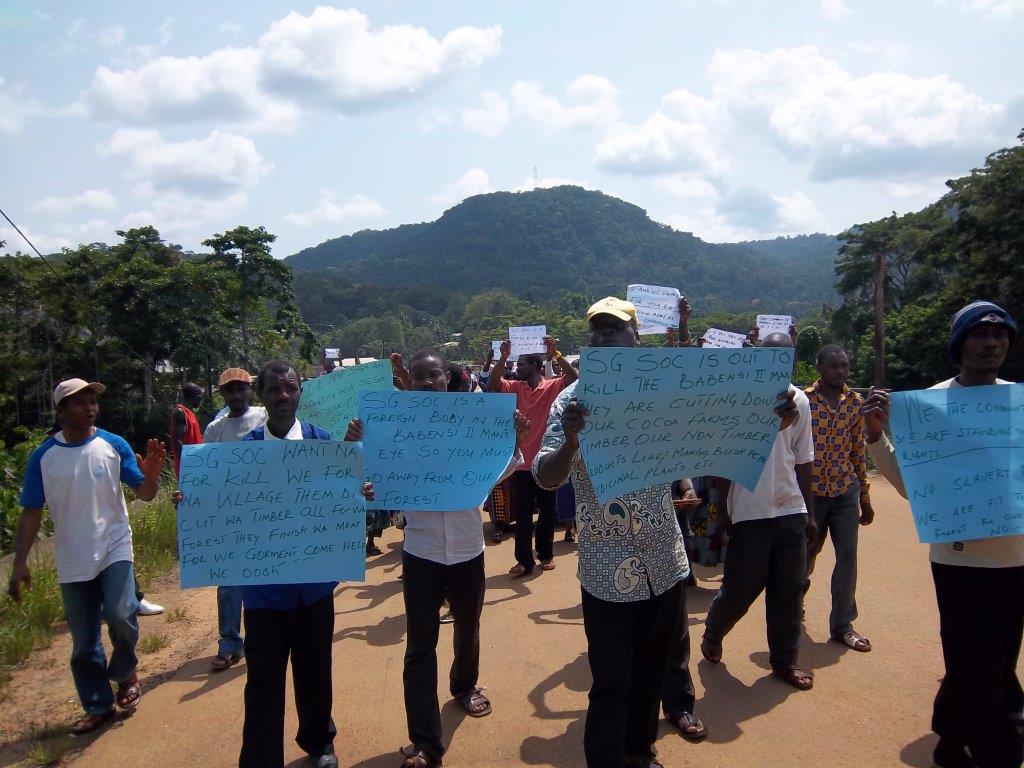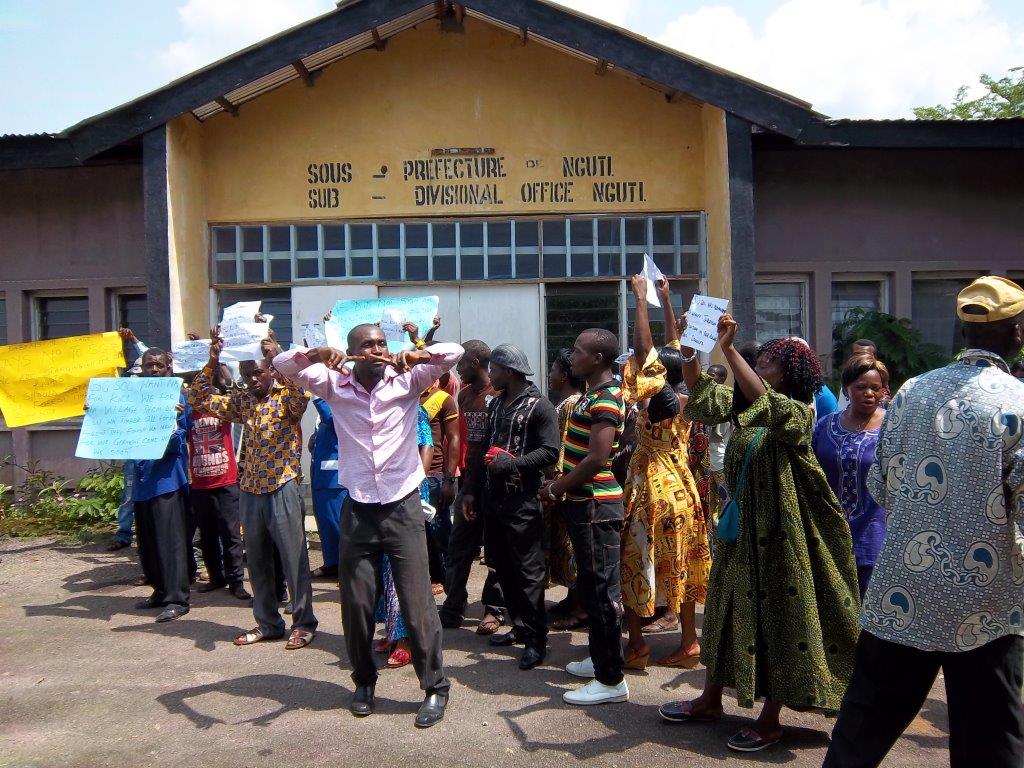Jaff Napoleon Bamenjo, Coordinator, RELUFA, JH Cameroon

Villagers of Babensi II village march to the Nguti sub divisional headquarters on April 4, 2014. Photo Courtesy of Eugine Ndi.
Multinational companies are grabbing land in alarming proportions in many parts of the world, particularly in Africa. In Cameroon, it is estimated that the total request for land by multinational companies in 2013 was between 1.6 and 2 million hectares (between about 6200 and 7700 square miles).
Land remains the main source of livelihood and therefore wealth for local communities, which is why they are working with civil society organizations to mobilize and resist both public authorities and the companies seeking to grab their land.
In Cameroon, the struggle by local communities to preserve their land has been particularly evident through resistance and campaigns against Herakles Farms, a New York based agro-industrial company that signed a convention with the government of Cameroon in 2009 requesting over 73,000 hectares (282 square miles) of land to develop a palm oil plantation. Since 2011, RELUFA and other likeminded international and national civil society organizations have supported local communities in the concession area in their struggle against the Herakles Farms land grab.
In response to the pressure, the president of the Republic of Cameroon signed three decrees on November 25, 2013, reducing the scale of the project to 20,000 hectares (77 square miles). However, despite the decrees, resistance against the project is still growing in some local communities that maintain their disapproval of the project and are not ready to cede their land.
The struggles against Herakles Farms have been met with a lot of opposition, including the intimidation of civil society organizations, activists and local communities.
Since September 2013, the local NGO Nature Cameroon, based in Nguti, has been barred from carrying out their awareness raising activities about the Herakles Farms project. The Divisional Officer of Nguti Sub Division suspended the group’s right to hold or organize public meetings or manifestations under the pretext that their activities threaten public order.
Similarly, Nasako Besingi, a local activist and head of a local NGO SEFE, Struggle to Economize Future Environment, has undergone constant harassment. Nasako has been vocal about the negative impacts of the Herakles Farms project since its inception. In November 2012, Nasako and four other activists were arrested for distributing anti-Herakles Farms’ t-shirts from their office. And then on December 31, 2013, Nasako Besingi was summoned by Lord Sheriff-Bailiff of Mundemba to respond to charges of “participating in an organization and holding of an undeclared public meeting” in relation to SEFE’s activities protesting against the presence of Herakles Farms. Court cases are currently pending, but local communities are not giving up their struggle to preserve their land from Herakles Farms.

Protesters in front of the Nguti sub divisional office April 4, 2014. Photo courtesy of Eugine Ndi.
The case of Babensi II village in Nguti Sub Division of the South West Region of Cameroon is quite telling. On Friday, April 4, 2014, over 300 people from this village staged a march against the Herakles Farms project. They marched to the office of the divisional officer, public security and the gendarmerie with messages denouncing Herakles Farms’ encroachment onto their land, which poses risks to their cocoa farms, timber and non-timber forest products, cultural shrines, medicinal plants, etc.
The people of Babensi II village are resolved to preserve their land and intimidation does not scare them since they believe so strongly in the cause they are pursuing. Local communities know and understand their rights and want to protect them despite the obstacles.
Land grabbing is unjust and local communities are taking the lead in confronting it. Public authorities are so focused on macro-economic growth and fail to understand the real implications at the local level. The determination of local communities to preserve their land may finally convince public authorities that losing land is a matter of life and death for communities.
![]() You may freely reuse and distribute this article in its entirety for non-commercial purposes in any medium. Please include author attribution, photography credits, and a link to the original article. This work is licensed under a Creative Commons Attribution-NonCommercial-NoDeratives 4.0 International License.
You may freely reuse and distribute this article in its entirety for non-commercial purposes in any medium. Please include author attribution, photography credits, and a link to the original article. This work is licensed under a Creative Commons Attribution-NonCommercial-NoDeratives 4.0 International License.